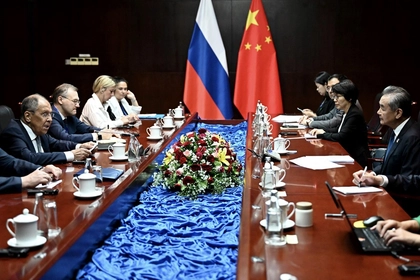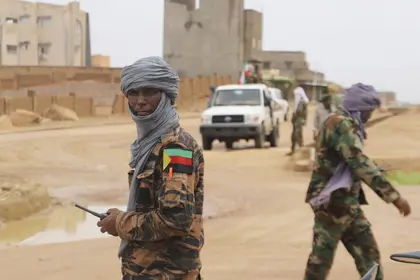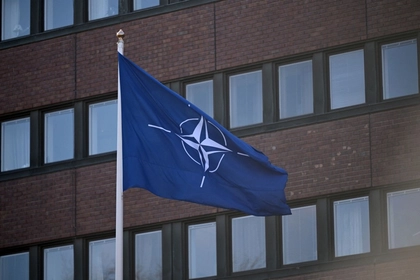Ukrainian special forces soldiers engage Russian Wagner mercenaries from a distance using FPV drones, subsequently ambushing them with small arms. Ukrainian Intelligence captures three contractors alive and films their interrogation as they kneel on the ground. One speaks Russian, while two are African guns for hire.
One might assume this is occurring in Ukraine, but in fact, Ukrainian SF and Wagner fighters, now rebranded as the “Expeditionary Corps” by Moscow, are battling on African soil, specifically in Sudan. The mercenaries have arrived from the Central African Republic, and their Ukrainian interrogators are informed, matter-of-factly, of their mission to overthrow the Sudanese government.
JOIN US ON TELEGRAM
Follow our coverage of the war on the @Kyivpost_official.
The presence of Wagner fighters in Africa is not a new development. Nevertheless, the involvement of fighters from two overseas nations waging war on African soil should serve as a warning and a wakeup call - it is high time for African countries to come together and forge a new path to safeguard their collective security interests.
Russia’s “Expeditionary Corps”, a private military company closely linked to Russian military operations, faces accusations of extensive human rights violations across Africa, particularly in the Central African Republic (CAR) and Mali. Their actions, ranging from brutal mass executions to arbitrary killings, have caused immeasurable suffering to local communities, intensifying humanitarian crises and impeding crucial support for survivors. The Moura massacre in Mali, where approximately 300 civilians were killed under the pretext of “counterterrorism,” stands as a stark reminder of the dire consequences of their involvement

Russia, China FMs Meet as ASEAN Talks Get Underway in Laos
In the CAR, the presence of “Russian instructors” associated with Wagner has fostered a climate of fear, with civilians enduring harassment, intimidation, and a wide array of human rights abuses. Arbitrary detention, torture, enforced disappearances, and sexual violence have become prevalent, cultivating a culture of impunity and denying victims access to justice and reparations.
The days when Putin sought plausible deniability regarding his shadowy mercenaries have passed; there is little point in expending effort when the world is well aware that Russia is engaged in a state of war with Ukraine, despite some persisting to call it merely a “conflict”- as if Ukraine harbors any grievance against Russia beyond being unjustly invaded, bombarded, and subjected to atrocities.
The Ukrainians also seem unconcerned about operating in Africa. Why should they be, when the broader Western world appears to overlook Africa's exploitation, with reported losses approaching three billion dollars since Russia's invasion of Ukraine. Indeed, the Ukrainians should be commended for recognizing the importance of countering Russia in Africa, a position that seems to be uniquely theirs.
So, what is the solution?
While the “Expeditionary Corps” entices with the illusory promise of quick fixes or sales pitches touting “regime survival packages,” a far more sustainable and legitimate approach lies in the establishment of an African PMC.
Having spent the first 25 years of my life in Africa, dedicating over four thousand hours to protecting and serving on the streets of Johannesburg as an unpaid police officer, and having invested significantly in writing about the continent's criminals, terrorists and pirates, my convictions are firmly rooted.
Experience has reinforced a belief that crystallized over a decade ago during a security conference in Portsmouth, England. There, the pressing issue was how to address Somali pirates off the Horn of Africa, who were hijacking entire ships and securing millions of dollars in ransom.
It became evident that the solution to such formidable challenges in Africa often necessitates a decisive demonstration of superior force.
At the Portsmouth meeting, various ideas from the developed world were proposed to solve the problem, ranging from non-lethal lasers and creating safe “impenetrable citadels” onboard ships to employing satellites and vast navies to establish “safe corridors” for vessels to sail through.
The other two African-born attendees and I suggested placing armed guards on the boats. Our proposal was dismissed with a wave of the hand, and we were told that it would only escalate matters and that the legalities surrounding ships carrying armed men on board were insurmountable.
In Africa, mirroring the resolve of ship crews who demanded armed intervention, the populace will ultimately rally for assistance - not from, but against entities like the Wagner Group, recognizing that their allegiance lies solely with their own interests and those of Russia.
Close friends who served on various tankers described their job as the most straightforward and uneventful they had ever encountered, often characterizing it as mundane. They recounted instances where, upon spotting a small pirate dhow approaching, they would sound the alarm, proceed to the vessel's edge, and fire warning shots into the water. Simply displaying their rifles to the approaching pirates was often sufficient to deter them.
In the early days, at least, the pirates would seek an easier target, typically a ship lacking professional armed defenders. Within a year of introducing skilled armed security personnel aboard ships traversing the Horn of Africa, the rate of successful pirate seizures dramatically sank, diminishing to near oblivion.
The answer to Russia's mercenary forces such as Wagner is equally straightforward—an African PMC, financed either by Africa through the African Union or by private financiers, with the company led and staffed by Africans. Such a force could not only serve as a counterbalance to external mercenary groups but also play a crucial role in enhancing stability within unstable countries.
By deploying to regions plagued by conflict, such as Sudan, the CAR, and Mali, this African-led PMC could support peacekeeping efforts, protect civilians, and assist in the establishment of democratic elections.
The challenge would be immense, particularly in terms of training. Training an African security force would have to go beyond tactical expertise and nurture the qualities that embody the best of the human spirit: duty, integrity, resilience, and strength. This approach would be paramount in fostering peacekeepers who uphold the continent's highest ideals
As the magnificent Nelson Mandela once said, “It always seems impossible until it's done.”
The views expressed in this opinion article are the author’s and not necessarily those of Kyiv Post.
You can also highlight the text and press Ctrl + Enter






